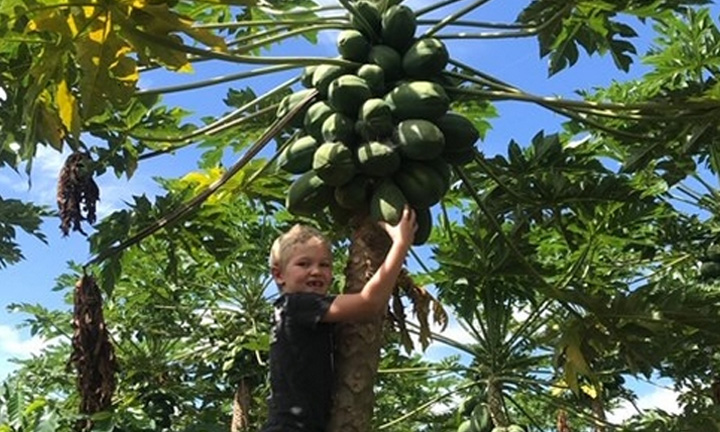SOURCE: Matt Russell, Freshplaza
Demand for Australian papaya has returned to normal, following the increase in retail purchasing immediately following the coronavirus pandemic outbreak.
North Queensland growers, Skybury, noticed a small reduction in demand following the ‘panic buying’ that Australia went through, but it has now levelled out with retailers and independent stores now returning to regular orders.
“The papaya production levels on Skybury still remain consistent and the weather has been very kind to us, with higher temperatures than average of late,” General Manager Candy MacLaughlin said. “(The season has been) positive, coming off the back of a slower period of demand over the summer months. Producing 52 weeks of the year has more advantages than disadvantages, but it’s always challenging when we are competing with the summer fruits. We are now entering our summer to winter transition, with fruit generally starting to increase in size. At this time of year educating consumers as to how to store the fruit over this period. Cooler temperatures in our southern markets mean fruit should be ripened at room temperature over the winter.”
Ms MacLaughlin added that a transition to producing all their own plant material from tissue culture has been an important advantage in terms of fruit quality.
“Papaya farmers are moulded by our seasons. Too hot and the trees don’t like it, too cold and they shrink their leaf canopy and if it’s too wet, you will also see a dip in production,” she said. “As farmers, we work on how we can minimise the impacts of a change in the seasons which for us in the north is dry or wet. Skybury has been working hard on its quality and consistency of supply and will continue to do so to ensure the eating experience of our consumers remains high.”
With the Australian borders closed to international visitors during the coronavirus outbreak, Ms MacLaughlin says she has seen a rise in ‘localism’ amongst Australian consumers. There is a growing desire to support Australian growers and source Australian produce. More than ever, Australians are now asking where their fruit comes from and this is a real opportunity to engage with farmers.
“Those that eat papaya regularly are still adding it to their shopping basket and we are working on introducing new customers to the category all the time,” Ms MacLaughlin said. “Skybury, together with our marketing company TFD (Tropical Fruit Direct), launched a social media campaign a few weeks ago with three key messages, health, versatility and support Aussie farmers. The nutritional and health benefits of this tropical fruit cannot be denied. A serving of papaya has more potassium than a banana and provides 100 per cent of your daily Vitamin C requirements, it has anti-inflammatory properties and is well recognised for its digestive support. Even the seeds, which are normally discarded, can be dried and used as a pepper substitute.”
The other two pillars of Skybury’s promotional campaigns are also gaining traction. The latest Neilsen data is showing some positive trends for papaya, with some modest increases in consumption. The latest social media campaign is not focused just on the individual company but aims to drive demand for the papaya category as a whole.
“Our philosophy has always been to support the broader industry – as they say, all ships float on a rising tide,” Ms MacLaughlin said. “We have worked hard on educating consumers on the diversity of this fruit to get people to think about it as an ‘all-rounder’. Make a curry with it or use it in your next salad for a bit of crunch. We love the fact that we are still a family-owned and operated business, now with four generations on the farm. This is the other message that we are sharing with our followers on FB and Instagram.”
Despite the uncertainty which the virus has brought, Ms MacLaughlin says it is important to continue to plan for growth beyond the virus, and farm staff have maintained plantings and production schedules to maintain supply into the future.
“Our research and development programs have also continued, where we continue to invest in new variety development to continue to improve eating quality and disease resistance. Unfortunately, we have had to close our farm-based visitor centre, but we still have a steady stream of locals buying papaya direct from the farm. The virus has also allowed us to think differently about how we engage with consumers and retailers and identify opportunities to further promote the category.
“With over 100 staff, our focus during COVID-19 has been on their health and wellbeing. We’re staggering the start times and locations of our staff. We’ve also implemented stricter hygiene controls and provided additional facilities across the farm for breaks for social distancing. We have a number of working holidaymakers, as well as workers from Papua New Guinea. With recent changes to visa regulations, we are helping our staff extend their visas so that they can stay employed. Our staff have been amazing – they’ve not missed a beat and have stayed positive. We certainly all have cleaner hands on the farm – we have hand sanitiser everywhere.”

